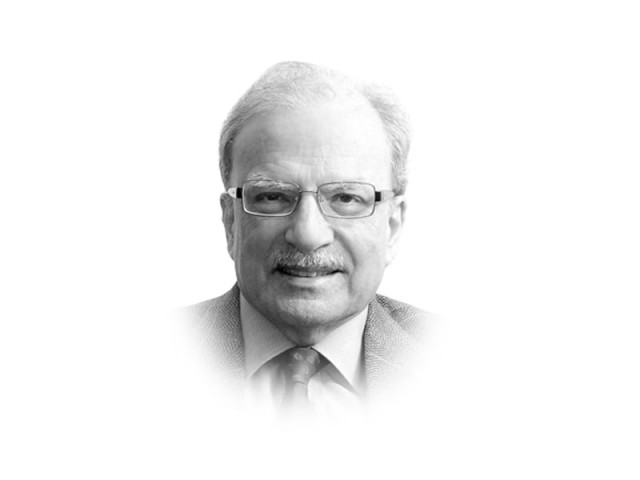The Afghan factor in Pakistan’s future
Possible division of Afghanistan will have serious economic, political consequences for Pakistan and its people.

We can contemplate two extreme possibilities, each of which will have enormous consequences for Pakistan. On one end of the probability spectrum, it can be assumed that the country will settle down after the withdrawal of foreign troops. Most of the violence is directed at foreign troops and the Afghans that support them. According to this scenario, various segments of the diverse Afghan society will find a way of working with one another, preferably, within a political framework that will be representative and durable. Once politically settled, the Afghans will begin to rebuild their war-ravaged economy, reduce dependence on foreign support and exploit the country’s enormous mineral potential. A Pentagon study estimated the potential of mineral deposits at one trillion dollars. It covers a number of minerals, including iron, copper, gold and platinum. Some of the mineral veins extend into Pakistan, especially in the country’s south. There is considerable foreign interest in getting to these deposits and foreign involvement will draw Afghanistan even closer to Pakistan.
If we move to the other side of the probability spectrum, a very grim picture could be painted about Afghanistan’s future. According to this, the civil war that followed the pull-out by the Soviet Union will look like a picnic when the United States and its allies leave. The assumption that a very large Afghan force of more than 300,000 soldiers will be able to take charge of security will prove to be highly optimistic. There are already signs that the force that has been built up by the Americans, working with their European allies, may not have the cohesiveness and have it remain loyal to the state. Instead, the moment the American umbrella is removed, we will see this force fracture.
Washington’s promise to pay $1.4 billion a year to sustain a large force will not amount to much after the pull-out is complete. The Americans are faced with a serious fiscal problem, in which all expenditures are being looked at to reduce the enormous burden of debt the economy carries. Providing such a large amount of support to Afghanistan for a long period of time will be one of the first commitments to fall by the wayside. Heavily armed men not certain that they will continue to receive their salaries will begin to seek the support of the numerous warlords in various parts of the country. If the Soviet Union’s departure resulted in a civil war with half a dozen contenders, there will be many more this time around. The conflict among them will be bloodier than the war that ended with the triumph of the Taliban in 1996. This time, the Taliban will be one of the active participants in the fight from the very beginning. The northern and central areas will come under the control of other social and ethnic groups. The Tajiks and the Uzbeks will control the northeast and the groups that have the support of Iran will dominate the west. This possible division of Afghanistan into three parts will create an extremist state right on the border with Pakistan. That state will continue using its ideological force to destabilise the areas south of the border, which will have serious economic and political consequences for the state and the people of Pakistan.
Which way Afghanistan goes will matter for Pakistan. Those who have chronicled Pakistan’s economic past may have overlooked Afghanistan as a contributing factor.
Published in The Express Tribune, November 12th, 2012.















COMMENTS
Comments are moderated and generally will be posted if they are on-topic and not abusive.
For more information, please see our Comments FAQ